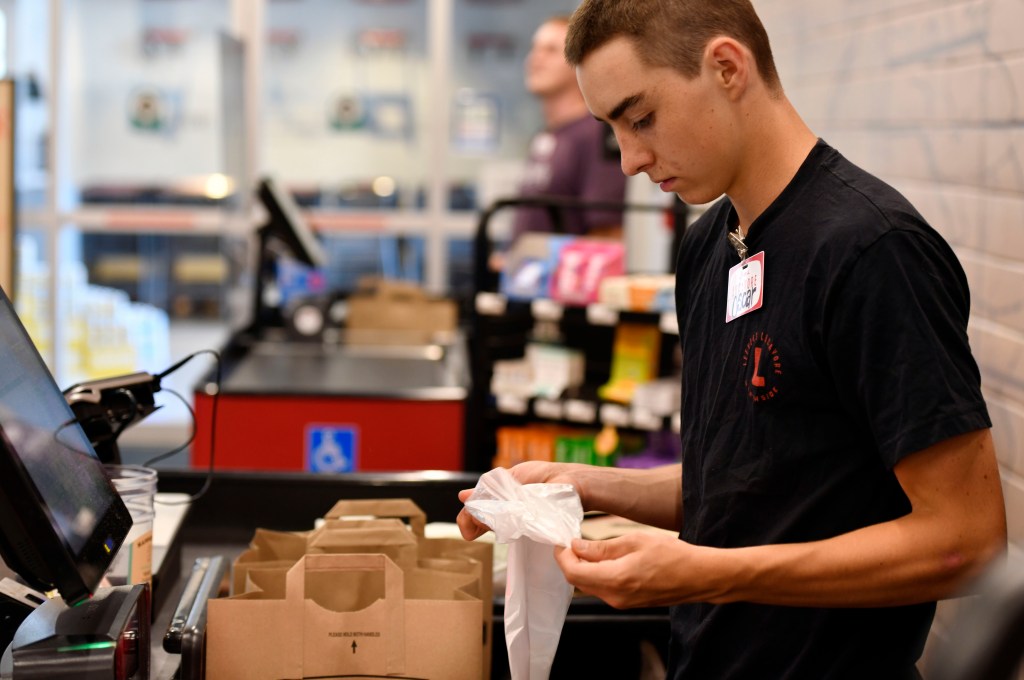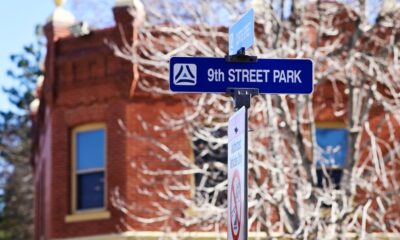World News
Here’s how much Denver has raised from its 10-cent plastic bag fee

Three years after requiring retailers to charge for single-use bags, Denver has collected $5.76 million, although that number is expected to slow.
The city said it has spent nearly $1 million of that, and an ongoing investigation will help determine where the rest of the money goes.
Denver began requiring retailers to charge 10 cents per disposable bag in July 2021. Retailers keep four cents from each bag to cover compliance costs, with the remaining six cents going to Denver’s Office of Climate Action, Sustainability and Resilience.
Denver’s law was followed by a similar statewide law, which banned single-use plastic bags starting in January, although retailers were allowed to use up pre-existing inventories through May. Retailers are still allowed to offer non-plastic bags for a fee.
State law has specific exceptions, such as for retailers with fewer than three stores, which municipalities can make stricter. Denver’s fee is required for all stores regardless of size.
Last year, 31.8 million single-use bags were reported to the city, compared to 37.25 million the year before.
“We see a decrease of approximately 5 million used (plastic) bags. That is the purpose of this fee, to encourage people to bring their own bags instead of buying a new disposable bag every time they go shopping,” said Natalie Lana, disposable bag program manager at the Denver Climate Office.
Denver’s bag collections peaked in 2022, when the city took in $2.37 million — not including the four cents per bag that retailers keep. Last year, this figure fell below $2 million. Through the first three months of 2024, Denver collected $330,000 — a pace of about $1.32 million per year.
The city said 157 citations have been issued to businesses for failure to comply with bag fees since the program began. Quotes start at $150.
Of the total $5.76 million, roughly $950,000 has been spent, with about $487,000 going to education and administration of the program, according to the city.
The rest was spent on three of the agency’s programs. Costing about $100,000, Reuse Denver Incentives offers small food businesses up to $600 worth of reusable tableware, such as plates, cups and cutlery. A $19,000 reusable cup program aims to help major events switch from disposable cups to reusable cups.
The program that raised the most money was reusable bag giveaways: events hosted by the office where residents can exchange plastic bags they’ve saved for a reusable bag made by Mile High Workshop from old, discarded marketing materials. The plastic bags are then processed by Trex into garden furniture. Since 2021, the city has spent more than $413,000 on the program.
“It’s a perfect example of Denver’s circular community because it supports community members, reuses local materials and brings value to the community,” Lana said.
As for the approximately $4.8 million in the city fund? The city is asking Denver residents to complete a survey to decide where that money should go. Options include funding water bottle refill stations in public places, funding community clean-up events and continuing the focus on offering reusable bags.
The survey needs between 500 and 1,000 respondents before the agency can make a clear decision, said Chelsea Warren, spokeswoman for the climate agency.
Lana said so far the research shows that residents are aware of the costs of single-use bags and are choosing to use reusable bags for environmental and sustainability reasons, not just because of the cost.
“People are really supportive of providing funding for programs to mitigate the effects of single-use waste on the environment,” Lana said.
With the nationwide ban on plastic bags and collection declines since 2021, the agency may eventually have to look elsewhere to fund its programs. The city’s Climate Protection Fund does not include zero-waste efforts, said Warren, manager of the bag program.
“We always knew this would be temporary, and the goal was to encourage people to use reusable bags,” Warren says.
This story was reported by our partner BusinessDen.











